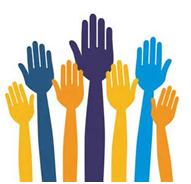Widgetized Section
Go to Admin » Appearance » Widgets » and move Gabfire Widget: Social into that MastheadOverlay zone
Volunteering in Public Service
By Joe Sarcone
 It’s not enough to want to help people. Like the ubiquitous white plastic bags that blow across the tundra and catch on the alder branches, we come into people’s lives. When the wind shifts, we are carried away only to be replaced or not by another in time. This is how it is for us as volunteers in public service. The difficult truth is that within this context we are expendable.
It’s not enough to want to help people. Like the ubiquitous white plastic bags that blow across the tundra and catch on the alder branches, we come into people’s lives. When the wind shifts, we are carried away only to be replaced or not by another in time. This is how it is for us as volunteers in public service. The difficult truth is that within this context we are expendable.
There is the inevitable juncture when the relevance of our volunteerism is not clear and acknowledgement of our work is not forthcoming. Here we are tempted to explain the uncertainty in terms of “these people.” These people won’t listen. These people don’t know what they want. These people don’t know what’s best for them. These people are dysfunctional. These people are anything that allows us to walk, to blow away with the next gust, unable to reconcile a role for ourselves in the lives of those we’ve pledged to serve.
But the great urgency remains because these people hurt, are sick, are hungry and thirsty. They care less about what we are– our program, mission or agency– than who we are in the presence of their suffering. This is the measure of our integrity.
Sustaining volunteerism is a continual challenge. It is easy to become overwhelmed, to slip into either end of the continuum that is our ego. Neither inflated self importance nor overwhelming despair serve the public and at either extreme volunteerism is not sustainable. A significant part of our work is to find the balance.
Inevitably in the course of volunteerism, we experience the ambiguous relief that the suffering of those we serve is not our own. It forces us to face our own humanity. Not the attributes of forgiveness and compassion but the cynicism and resentment that reveal our human frailty and threaten to alienate us from our service. When faced with the suffering of others we must neither turn away in embarrassment nor cast blame. Instead we must find a shared place in the human condition with those we serve. Genuine empathy ultimately determines whether we can be of help to others or not.
It is easy to continually give and then resent. There is the expectation that society will notice and reward our sacrifice. When this is not forthcoming we can lose patience and objectivity and become a burden instead of an asset. As Therese Martin said, we must be mindful that what matters in life is “not great deeds, but great love.”
As volunteers with limited resources there are times we face conditions that are beyond our imagination. Those we serve may find it difficult to disassociate us from the social forces that cause instability within their lives. We cannot truly know what others believe. But we can begin to know where others perceive harm. This is where we can shine the light of our knowledge and find our place in the lives of others.
The world needs volunteers in public service. We have a place in promoting the well being of others. The four agreements outlined by Don Miguel Ruiz can serve as our guide:
1) Be impeccable with your word.
2) Don’t take things personally.
3) Don’t make assumptions.
4) Always do your best.
Within this context it is not program or mission that defines public service. Instead there is simply individual choice on the part of the volunteer to manifest public service as the work of service to others, and in so doing, to redefine public service.
“You have to have your heart glad when you are serving the people.” Inupiaq elder Mary Ann Warden.
Joe Sarcone is a returned Peace Corps Volunteer and a former sanitarian with the International Rescue Committee (IRC) Malawi Medical Program for Mozambican Refugees.


Follow Us!